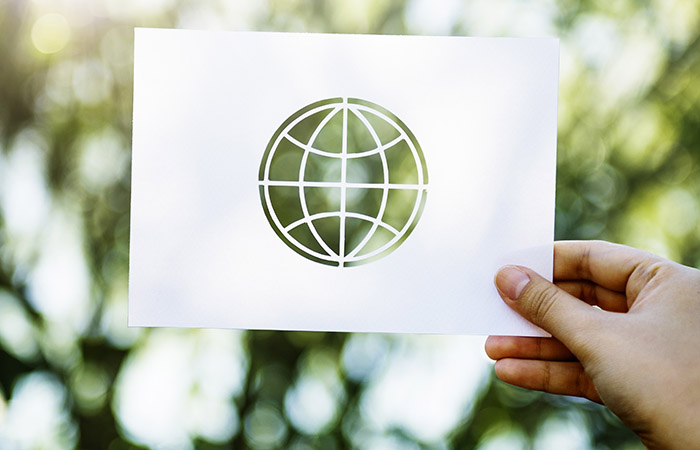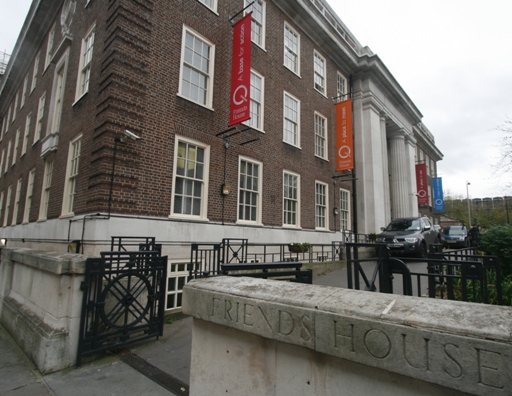 At CFSC, we’re often asked how to get direct experience in justice and peace work. Here are some of the service opportunities in Canada and internationally available to you. Note that CFSC does not endorse any of these programs in particular, so further research and decisions about what service work you are most led to is up to you!
At CFSC, we’re often asked how to get direct experience in justice and peace work. Here are some of the service opportunities in Canada and internationally available to you. Note that CFSC does not endorse any of these programs in particular, so further research and decisions about what service work you are most led to is up to you!
1) CFSC individual grants
Funding is available to support individual Friends’ peace and justice work.
Open only to Friends.
2) Camp NeeKauNis (Quaker)
Volunteer activities include Work Camp, cooking, working with youth and helping at refugee camp. Week long, weekends, mostly summertime. Where: Southern Ontario, near Waubaushene. Costs vary; funding is available through the camp.
Open to Friends and non-Friends.
3) Alternatives to Violence Project (AVP)
Founded by Quakers, AVP offers nonviolence training in communities, schools, and prisons in Canada and around the world. AVP is a strictly unpaid volunteer program.
Open to Friends and non-Friends.
4) Circles of Support and Accountability (CoSA)
Founded in 1995 by Canadian Mennonites, CoSAs have now spread around the world, providing support and accountability primarily for those who have committed sexual offenses and are reintegrating into their communities. The unpaid volunteers who serve on a CoSA are 21 or older. They are professionally supported and work in conjunction with community agencies, treatment providers like psychologists, parole or probation officers, the police, and courts.
Open to Friends and non-Friends.
5) Mennonite Central Committee Canada (MCC)
A historic peace church, Canadian Mennonites offer programs which range from a few hours a week in communities across Canada to weeks/months/years abroad.
Non-Mennonites are accepted for many positions, however they must be an active member of a Christian church and agree to adhere to MCC's detailed document on faith commitments and lifestyle.
Outside of Canada
1) Quaker Voluntary Service (QVS)
QVS is a spirit-led service year program for young people 21-30 years old who live in intentional communities while working full time in social justice organizations in one of five cities in the US. The houses are located in Atlanta, Boston, Minneapolis, Portland, and Philadelphia. A few international Fellows serve with QVS each year, and you can find visa resources here.
Open to Friends and non-Friends with an invitation for Fellows to try on Quaker practices. QVS hopes that Fellows leave the program feeling more spiritually grounded and connected than when they came in. Applications open mid-November and close mid-March.

Friends House in London, England is home to the offices of Quaker Peace and Social Witness among other Quaker bodies
2) Quaker Peace and Social Witness (QPSW)
QPSW (the British equivalent to CFSC) places peace workers within other (non-Quaker) peace organizations. The aim is both to provide the peace worker with paid work experience and to enhance a partner organisation’s capacity. When: Year-long; Where: United Kingdom
Open to Friends and non-Friends.
3) Quaker United Nations Offices (QUNO)
a. QUNO Geneva Summer School
Introduction to the structure and function of the UN seen through the programmatic work of QUNO. When: 2 weeks in July Where: Geneva
b. QUNO Program Assistantships (Internships):
Both QUNO offices offer internships to those with an interest in international affairs and the UN
When: Year-long; Where: Geneva and New York. Paid positions. Note that applicants are required to sort out their own work permits and accommodation.
Open to Friends and non-Friends.
4) Quaker Council for European Affairs (QCEA)
QCEA offers full year paid internships as well as shorter (2-3 month) volunteer opportunities based in Brussels, Belgium.
Open only to Friends.
5) Friends Committee on National Legislation (FCNL)
FCNL offers volunteer opportunities as well as summer internships and a Young Fellow Program among other ways to get involved.
Open to Friends and non-Friends.
6) Quaker Youth Pilgrimage (sponsored by FWCC)
Young Friends spend a month together in the summer traveling, living, and working on a service project. The Young Friends learn about Quaker history and practices, strengthen their relationship to the Spirit, and experience the diversity of Friends’ traditions and worship. The Pilgrimage is jointly sponsored by the Section of the Americas and the Europe and Middle East Section of Friends World Committee for Consultation (FWCC) and has been run for over 50 years.
Open only to Friends.
7) American Friends Service Committee (AFSC)
Volunteer opportunities are open on a periodic basis and there are a wide variety of internship opportunities.
Open to Friends and non-Friends.
8) Woodbrooke Quaker Study Centre
Located in Birmingham, England, Woodbrooke provides opportunities for Friends seeking to join their "Worship and Welcome" team for anywhere from 2 weeks to 3 months. Friends in Residence should be prepared for late evenings, early mornings, and occasional disturbed nights. Friends in Residence create a welcoming atmosphere and support Woodbrooke in many activities such as bulk mailings, cleaning, and gardening. Friends in Residence receive free accommodation and meals and have the opportunity to attend courses offered at Woodbrooke.
Open only to Friends.

Parfaite Ntahuba, Coordinator of AGLI sponsored Friends Women's Association in Burundi, prepares before giving a talk at Friends House in Toronto
9) African Great Lakes Initiative of the Friends Peace Teams (AGLI)
AGLI strengthens, supports, and promotes peace activities at the grassroots level, focusing on peacebuilding, trauma healing, and reconciliation. Work camps bring together locals and internationals to engage in this peacebuilding work. When: Mid-June to mid-July. Where: Burundi, Rwanda, Uganda, or Kenya. Cost: Fundraising (minimum $2,300) plus airfare.
Open to Friends and non-Friends.
10) ProNica
A project of South Eastern Yearly Meeting, ProNica assists established community organizations in Nicaragua, focusing on community development, sustainable agriculture, health, education, nonviolence training, and economic empowerment. Volunteers must speak near fluent Spanish and commit to a minimum of 2 months. Work varies according to the needs of the partner organizations. There are also shorter student delegations. Volunteers pay for all of their own expenses and do not receive any stipends.
Open to Friends and non-Friends.
11) World Council of Churches' (WCC) Ecumenical Accompaniment Programme in Palestine and Israel (EAPPI)
EAPPI is coordinated for Canadians by the United Church of Canada. Ecumenical Accompaniers (EAs) monitor and report violations of human rights and international humanitarian law, offering protection through nonviolent presence, engaging in public policy advocacy, and standing in solidarity with those struggling against the occupation. Must be 25 years of age or older with a knowledge of the Palestinian/Israeli conflict and a commitment to continued advocacy upon return home. Three month placement. Where: Different teams located around the West Bank.
Open to Friends and non-Friends.
12) Christian Peacemaker Teams (CPT)
Co-founded by Friends United Meeting, CPT practices faith-based, active peacemaking grounded in the transforming power of Gospel nonviolence. Short-term delegations or longer-term presence around the world in areas of crisis. Applicants must be at least 21 and have experience in nonviolent direct action. Stipends are offered for some types of service.
Open to Friends and non-Friends.
13) Peace Brigades International (PBI)
Founded with significant inputs from Friend Murray Thomson and other Quakers, PBI places volunteers in communities where support and protective accompaniment is requested by local human rights defenders. PBI volunteers report to the outside world a balanced analysis of the situation witnessed on the ground. Expenses are fully covered and volunteers get a small stipend. PBI prefers volunteers to be over the age of 25 and able to make a minimum commitment of staying in the country for a year.
Open to Friends and non-Friends.
Peace Education
Finally, while not exactly a service opportunity, if you're looking to build your practical peace skills Rotary International awards fully-funded fellowships for leaders with work experience in peace and development. Fellowships can either be for a full Master’s degree, or a one year certificate program to gain practical skills to promote peace.
There are also many formal and informal education opportunities related to peace. Check out the Global Campaign for Peace Education for more resources and ideas.

